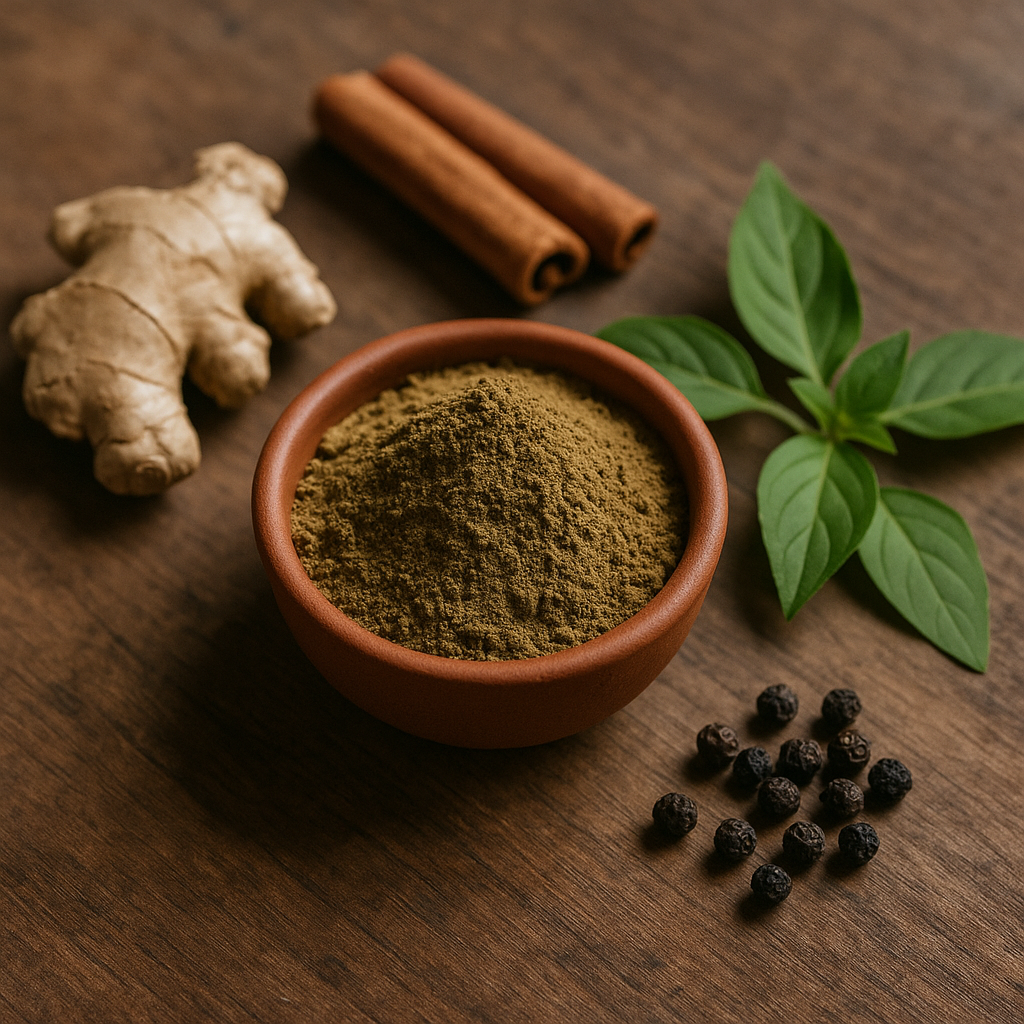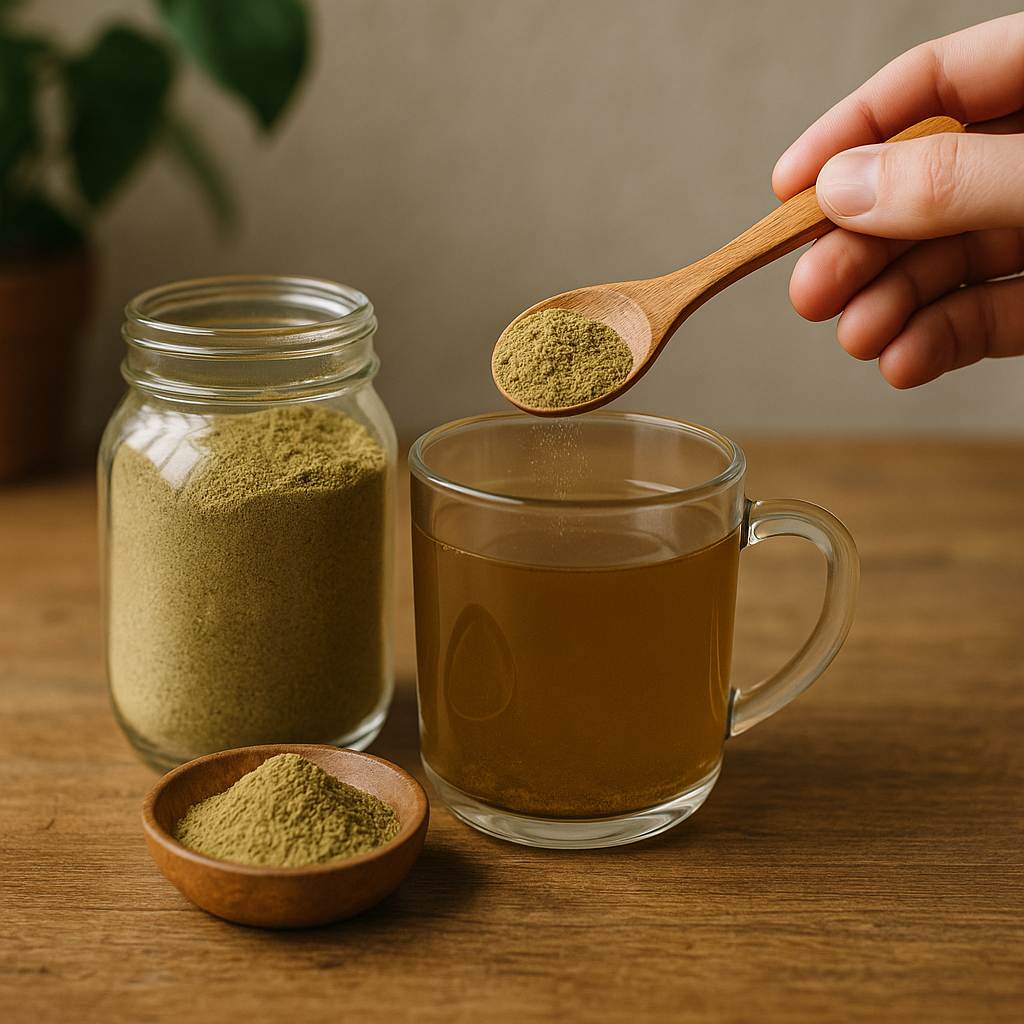Ayush Kwath Powder: How to Use It, Benefits, and Daily Dosage

Looking for a natural way to boost your immunity? Wondering ayush kwath powder how to use it or what it even is? You’re not alone. With the rise of herbal remedies and traditional medicine, Ayush Kwath Powder has become a go-to solution in many Indian households—and now, it’s spreading globally.
In this article, we’re diving deep into ayush kwath powder uses, its benefits, ingredients, and exactly how to make it a part of your daily wellness routine. Whether you’ve just heard of it or you’ve been eyeing that pouch of herbal powder in your kitchen cabinet, this guide will tell you everything you need to know—without any fluff or confusing jargon.
Let’s get into the nitty-gritty of how to use ayush kwath powder and why it might be worth adding to your daily health habits.
What Is Ayush Kwath Powder?
Ayush Kwath Powder Ingredients and Ayurvedic Background
Ayush Kwath Powder is a traditional herbal formulation recommended by the Ministry of AYUSH, Government of India. It’s rooted in Ayurveda, the ancient Indian science of natural healing that’s been practiced for thousands of years. The term “Kwath” actually refers to a herbal decoction—basically, boiling herbs in water to extract their beneficial properties.
Now, let’s talk about the core ayush kwath powder ingredients:
-
Tulsi (Holy Basil) – Known for its anti-viral and anti-bacterial properties.
-
Dalchini (Cinnamon) – A powerful antioxidant and anti-inflammatory spice.
-
Sunthi (Dry Ginger) – Great for digestion and soothing sore throats.
-
Krishna Marich (Black Pepper) – Helps in the absorption of nutrients and clears respiratory tract.
It’s this combination that makes it more than just your average tea—it’s a daily dose of wellness in a cup. Literally.
What Makes It a Trusted Immunity Booster
There’s a reason people swear by Ayush Kwath, especially during flu season or when the weather turns. The herbs used in it have been individually studied for their effects on immunity, inflammation, and respiratory health. Together, they create a synergistic blend that helps your body stay resilient.
Also, it’s caffeine-free and doesn’t have any synthetic additives, which is a huge plus. You're not getting an instant fix; you’re building a stronger defense system over time. (Just don’t expect magic overnight—herbs work best when taken regularly!)

Don't wait or self medicate. Start chat with Doctor NOW
Ayush Kwath Powder Benefits and Uses
Daily Use for Immunity and Respiratory Health
One of the primary benefits of ayush kwath powder is that it supports your immune system naturally. Unlike artificial supplements that may be too strong or cause side effects, this blend works gently yet effectively.
People who use it regularly report:
-
Less frequent colds and coughs
-
Easier breathing, especially in polluted environments
-
Better gut health (ginger helps here!)
Uses of ayush kwath powder aren’t just limited to immunity. It's been used to relieve sore throats, reduce inflammation, and even aid in mild fevers. Some folks even mix it with honey or jaggery for added taste and effect.
Benefits of Ayush Kwath Powder During Seasonal Changes
The shift from winter to summer, or monsoon to winter, often brings with it a wave of illnesses. That’s where Ayush Kwath really shines. Regular use can help your body adapt better to changing temperatures and environmental stress.
You might’ve noticed, every time the season changes, there’s that one person who falls sick first—don’t be that person.
How to Use Ayush Kwath Powder Properly
Recommended Dosage and Preparation Method
Let’s clear up one thing: ayush kwath powder how to use it properly can make a huge difference in how well it works. A lot of people either use too much or brew it wrong and then complain it’s not working. But when taken correctly, it can be surprisingly effective.
The ayush kwath powder dosage recommended by most Ayurvedic practitioners is 3 to 5 grams (about 1 teaspoon) once or twice a day. For those wondering how to prepare it—don’t worry, it’s super simple:
-
Take about 150 ml of water (roughly one teacup).
-
Add 1 teaspoon of the powder.
-
Boil the mixture until it reduces to about half (you want a strong decoction, not watery tea).
-
Strain and sip slowly while it’s warm.
You can add a bit of honey or jaggery for taste, but don’t boil it with the herbs—just add it once it's slightly cool. Some people even add a squeeze of lemon, which isn’t traditional but hey, it works for flavor.
Pro tip? If you’re really short on time, some brands offer ready-made tea bags, but the powder decoction is usually more potent.
When to Take Ayush Kwath Powder: Morning or Evening?
Now, here’s a question people ask a lot—"When exactly should I take it?"
Ideally, morning is the best time to consume Ayush Kwath, especially on an empty stomach. It helps cleanse the system, kickstart digestion, and gear up your immunity for the day ahead. But if your mornings are chaotic (we get it), you can also take it in the evening, preferably before dinner.
However, avoid taking it late at night. The ginger and pepper can be a bit stimulating for some people, especially if you're sensitive to spices. Trust us, you don’t want to be up at 2 AM googling “why can’t I sleep after drinking herbal tea??”

Who Should or Should Not Use Ayush Kwath
This is important. While the uses of ayush kwath powder are mostly safe for general use, it might not be for everyone.
✅ Good for:
-
Adults looking to improve immunity
-
People recovering from minor infections
-
Individuals with mild respiratory issues
-
Those living in polluted or high-stress environments
❌ Caution if:
-
You’re pregnant or breastfeeding (talk to your doctor first)
-
You have ulcers or a sensitive stomach (ginger and pepper can irritate)
-
You're already on heavy medications—consult a professional
Also, kids can take it, but in much smaller doses and only if advised by a healthcare provider. Same goes for older folks; the powder is generally safe, but the dosage and preparation should be mild.
It’s herbal, yes. But “natural” doesn’t mean “unlimited.” Like anything, moderation is key. And seriously—don’t go doubling the dose hoping it’ll work faster. That’s not how Ayurveda works.
Conclusion
So, there you have it—everything you needed (and probably didn’t know you needed) about Ayush Kwath Powder. From how to use ayush kwath powder to its immunity-boosting powers and proper dosage, we’ve covered it all in a way that (hopefully!) made things clear, simple, and useful.
Let’s quickly recap the major benefits of ayush kwath powder:
-
It supports your immune system and respiratory health.
-
It’s made from natural, time-tested Ayurvedic ingredients.
-
It’s easy to prepare and fits right into a busy lifestyle.
-
It helps your body adapt better to seasonal changes and pollution.
But remember—it’s not a miracle in a mug. Regular, mindful use is where the real magic lies. If you’re consistent, you’re more likely to feel the subtle but real difference in your day-to-day well-being. Skip it for a few days, and you might not notice it instantly... but your immune system definitely will 😅.
And if you’re already enjoying your daily cup? Share this with a friend who’s always sniffling or swearing by chemical-filled supplements. Seriously. They’ll thank you later.
FAQs
Can Ayush Kwath Powder be taken daily for a long time?
Yes, you can take it daily for long-term support. It’s designed for regular use, not just when you feel sick. That said, it’s always good to give your body small breaks occasionally—maybe skip a day or two per week if you’re feeling balanced.
Are there any side effects of Ayush Kwath Powder?
Usually, it’s well-tolerated. But if you take more than the recommended ayush kwath powder dosage, you might experience mild stomach discomfort or acidity. Always start with a small amount and increase gradually if needed. Also, if you’re on medications or have specific health conditions, do check with your doc first. Just bein’ safe!
Can children and elderly people use Ayush Kwath?
Yes—but with care. For children, use smaller doses (1/4 to 1/2 of an adult dose) and only after checking with a pediatrician. For elderly folks, it can actually be very beneficial for respiratory and immune function, but again, adjust the dosage based on how their body reacts.
Got any more questions?
Ask Ayurvedic doctor a question and get a consultation online on the problem of your concern in a free or paid mode.
More than 2,000 experienced doctors work and wait for your questions on our site and help users to solve their health problems every day.

